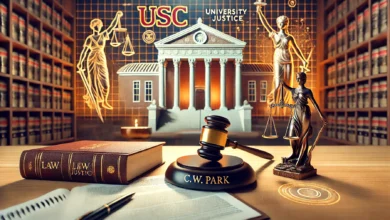University of Metaphysical Sciences Lawsuit

University of Metaphysical Sciences Lawsuit – Understanding the Context
The phrase “University of Metaphysical Sciences lawsuit” often sparks curiosity because it brings together two very different worlds: the academic study of metaphysics and the legal system. To understand this better, it’s important to look at what the University of Metaphysical Sciences (UMS) is, what kind of lawsuits or legal discussions may surround such institutions, and why these issues matter to students and the general public.
What is the University of Metaphysical Sciences?
The University of Metaphysical Sciences (UMS) is an educational institution that offers programs in spirituality, meditation, holistic healing, and metaphysical studies. Unlike traditional universities that focus on sciences, business, or medicine, UMS aims to provide spiritual seekers with structured learning on topics like consciousness, philosophy, and inner growth.
Its courses are designed to give students credentials in metaphysical practices and to prepare them for careers as spiritual counselors, authors, or teachers.
Why Do Lawsuits Happen Against Educational Institutions?
Whenever we hear the phrase “University of Metaphysical Sciences lawsuit”, it does not necessarily mean wrongdoing but could point to common issues that arise in the education sector:
- Accreditation Questions – Many spiritual or alternative education institutions face scrutiny over whether their degrees are officially recognized. Lawsuits sometimes arise if students feel misled about accreditation status.
- Consumer Protection – Students may file claims if they believe promises made by the university (such as job opportunities or recognized qualifications) were not accurate.
- Faculty or Employment Issues – Like any organization, disputes between staff and the institution can sometimes turn into legal cases.
- Intellectual Property or Branding – Universities sometimes face lawsuits around the use of their name, logo, or materials.
The Broader Picture of a University of Metaphysical Sciences Lawsuit
When discussing a University of Metaphysical Sciences lawsuit, it’s important to remember that legal cases in this field are often less about fraud or criminal activity, and more about administrative clarity and recognition. Spiritual universities operate in a niche area where conventional accreditation bodies may not apply, leading to misunderstandings.
In such situations, lawsuits can bring clarity about:
- What kind of degree is being offered (academic vs. spiritual certification).
- How students can use their credentials (personal development vs. professional licensing).
- What obligations the university has toward its learners.
Why This Matters to Students
For students considering enrolling in a spiritual or alternative studies program, awareness of a potential University of Metaphysical Sciences lawsuit is not necessarily a red flag—it is a reminder to:
- Research the accreditation and recognition of the institution.
- Understand the difference between a spiritual qualification and a state-recognized degree.
- Make informed decisions about how such education fits into personal or career goals.
Conclusion
The term University of Metaphysical Sciences lawsuit represents the intersection of spiritual education and legal accountability. While lawsuits may raise concerns, they also help ensure transparency in how such institutions operate. For students, the key takeaway is to stay informed, ask the right questions, and align educational choices with long-term goals.
Frequently Asked Questions (FAQ)
Q1: What is the University of Metaphysical Sciences?
The University of Metaphysical Sciences (UMS) is a distance-learning institution that offers courses in metaphysics, spirituality, meditation, and holistic healing. Its programs are designed for individuals seeking spiritual growth and credentials in metaphysical fields.
Q2: Why would there be a University of Metaphysical Sciences lawsuit?
A University of Metaphysical Sciences lawsuit could arise due to issues like accreditation disputes, consumer protection claims, employment disagreements, or branding/intellectual property conflicts. These are common in alternative education institutions.
Q3: Is the University of Metaphysical Sciences accredited?
UMS is not accredited by traditional U.S. Department of Education agencies. Instead, it operates under spiritual and alternative accreditation bodies. This distinction sometimes leads to legal questions and lawsuits about recognition.
Q4: Can I use a degree from the University of Metaphysical Sciences for professional purposes?
Degrees from UMS are generally intended for personal spiritual development, counseling, writing, or teaching in holistic/metaphysical contexts. They are usually not recognized for licensed professions like psychology, medicine, or law.
Q5: Should I be worried if I hear about a University of Metaphysical Sciences lawsuit?
Not necessarily. Lawsuits can happen to any educational institution. In the case of UMS, they often center around clarity of accreditation or promises made in marketing. As a student, it’s best to review all program details before enrolling.
Q6: How can students protect themselves before enrolling?
Students should research the institution, verify its standing with relevant accrediting bodies, read reviews from alumni, and ensure the degree aligns with their goals. Transparency is key when choosing any alternative university.



